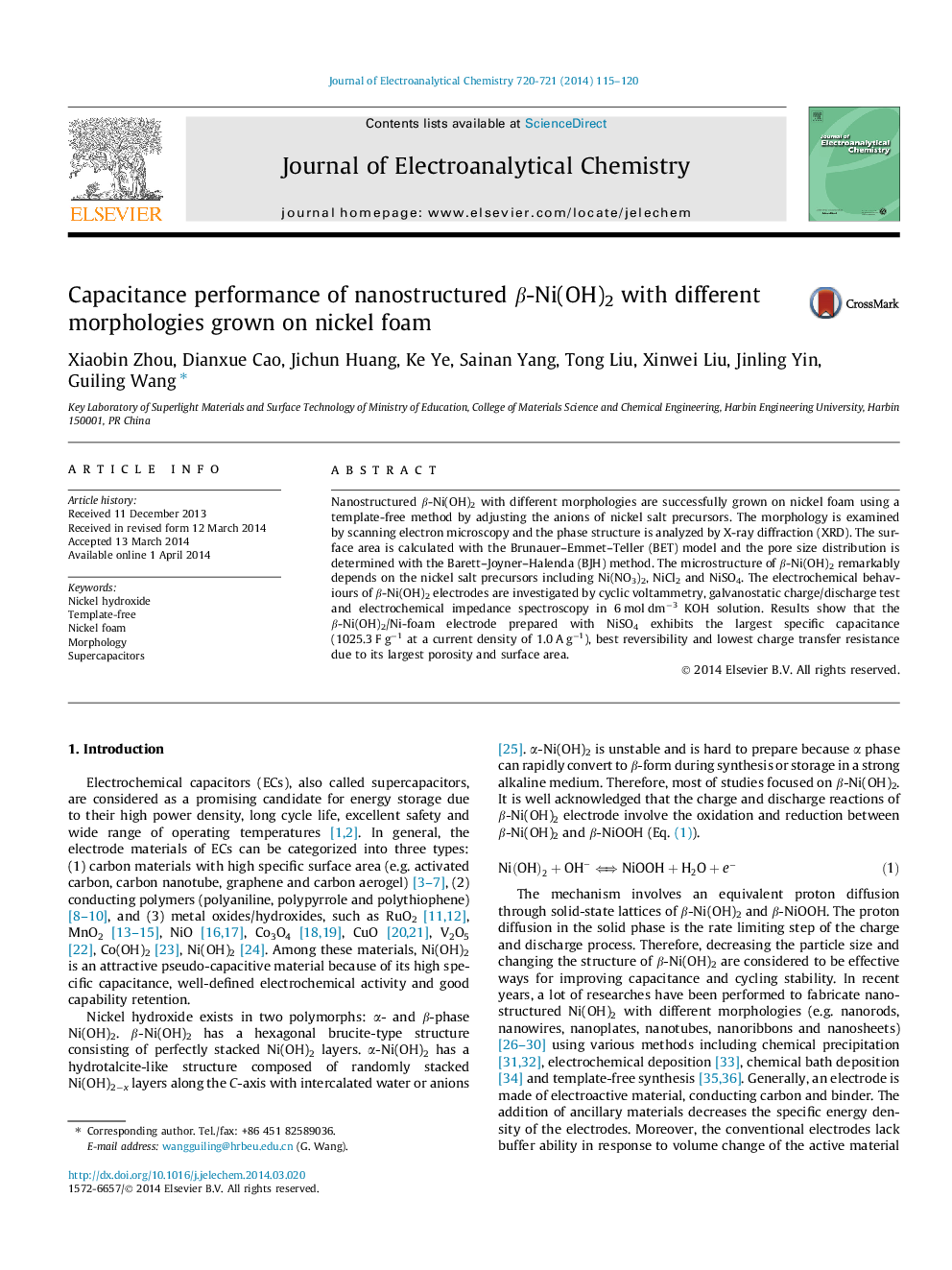| کد مقاله | کد نشریه | سال انتشار | مقاله انگلیسی | نسخه تمام متن |
|---|---|---|---|---|
| 218819 | 463220 | 2014 | 6 صفحه PDF | دانلود رایگان |

• β-Ni(OH)2 was modified via a template-free method by using different nickel salt.
• The effects on the morphology and electrochemical behaviors were investigated.
• The β-Ni(OH)2–SO42−/Ni-foam electrode displays 1025.3 F g−1 at 1.0 A g−1.
Nanostructured β-Ni(OH)2 with different morphologies are successfully grown on nickel foam using a template-free method by adjusting the anions of nickel salt precursors. The morphology is examined by scanning electron microscopy and the phase structure is analyzed by X-ray diffraction (XRD). The surface area is calculated with the Brunauer–Emmet–Teller (BET) model and the pore size distribution is determined with the Barett–Joyner–Halenda (BJH) method. The microstructure of β-Ni(OH)2 remarkably depends on the nickel salt precursors including Ni(NO3)2, NiCl2 and NiSO4. The electrochemical behaviours of β-Ni(OH)2 electrodes are investigated by cyclic voltammetry, galvanostatic charge/discharge test and electrochemical impedance spectroscopy in 6 mol dm−3 KOH solution. Results show that the β-Ni(OH)2/Ni-foam electrode prepared with NiSO4 exhibits the largest specific capacitance (1025.3 F g−1 at a current density of 1.0 A g−1), best reversibility and lowest charge transfer resistance due to its largest porosity and surface area.
Journal: Journal of Electroanalytical Chemistry - Volumes 720–721, 15 April 2014, Pages 115–120